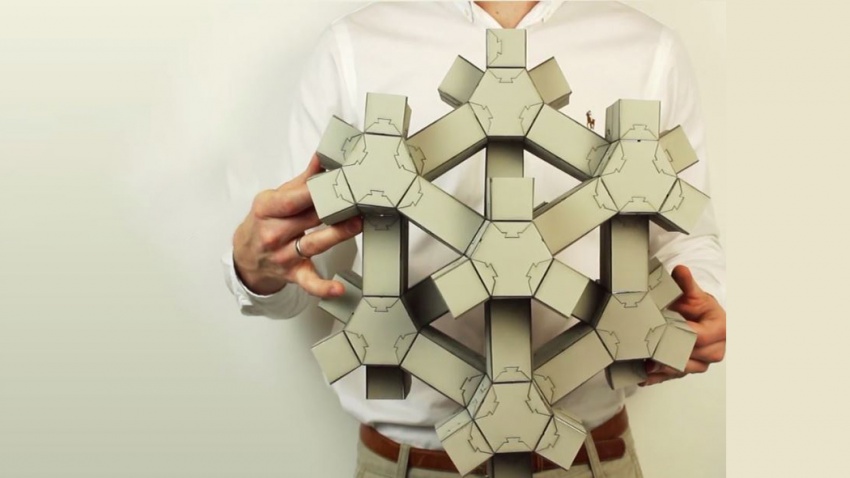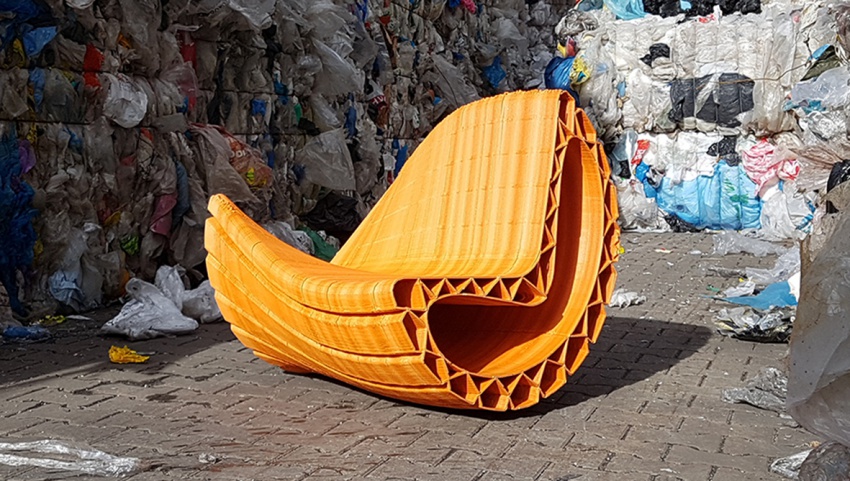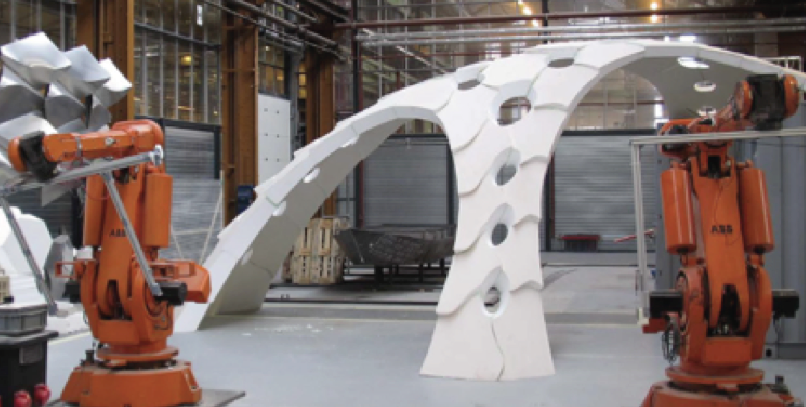Lectures
Lectures 2022
Lecture TUD 2-Q4
Alessandra Luna Navarro Responsive systems
slides
demo1
demo2
Lecture TUD 1-Q4
Casper van Engelenburg: Computer Vision for Architectural Design and Manufacturing
video
pdf
Introduction TUD Q4
19.4, starting 9:00h, Henriette Bier: Interactive Architecture (AR2AA016)
video, slides, and Interactivity in Architecture & Art
slides
Arwin Hidding and Max Latour: Computational Design of a Robotically Produced Urban Furniture (work in progress)
video
and CW4N
video
Stijn Brancart and Alessandra Luna Navarro: Interactive and Structural Design
video,
slides
Lectures 2021
Introduction TUD Q4
21.04, starting 11:00h, Henriette Bier, TU Delft, MSc 2 Studio: Design-toRobotic-Production and -Operation (D2RP&O) for Interactive Urban Furniture (IUF)
Slides: http://uf.roboticbuilding.eu/pdf/MSc2_IA.pptx
Lecture TUD 1-Q4
21.04, 13:00h, Milica Pavlovic, KU Leuven on UX within Systems of Spatial User Interaction
Zoom: https://tudelft.zoom.us/j/97586666953
Milica Pavlovic is a postdoctoral research associate at the eMedia Lab, working on design research projects for tangible and embodied interactions for various applications. Milica holds a PhD degree in Interaction and Experience Design from Polytechnic University of Milan, where she worked as a research fellow and teaching assistant. She developed her doctorate research in collaboration with the Joint Open Lab Digital Life and Services Innovation Department from TIM S.p.A.
Slides: http://uf.roboticbuilding.eu/pdf/PavlovicMilica_21-04-21_TU%20Delft%20RoboticBuilding.pptx
Lecture TUD 2-Q4
28.04, 13:00h, Jeroen van Ameijde, The Chinese University of Hong Kong on Data-driven Urban Design: Conceptual and Methodological Interpretations of Negroponte’s ‘Architecture Machine’
Zoom: https://tudelft.zoom.us/j/97586666953
Jeroen van Ameijde is Assistant Professor at the School of Architecture, the Chinese University of Hong Kong, teaching and conducting research in architecture, urban analytics and data-driven design. Before joining CUHK, he taught at the Architectural Association in London, as well as at The Bartlett, UCL, and the University of Pennsylvania. He has over ten years of experience as practicing architect and urban designer, including as a partner and director at Urban Systems Office, where he coordinated the design and development of several large-scale residential, mixed-use and master planning projects.
Jeroen’s research interests focus on the intersection between urban studies and urban design, and how the analysis and planning of social, cultural and economic activities can be guided through computational methods for data management and design testing. He explores generative design methodologies to test programmatically complex urban and architectural proposals, as well as urban modelling techniques to speculate on processes of future urban development. He has published and lectured internationally and has taught or coordinated workshops in collaboration with numerous universities. His recent research work includes studies into urban regeneration in Shenzhen and Hong Kong, as well as environment-behaviour, estate planning and placemaking studies related to Hong Kong’s public housing.
Lecture TUD 3-Q4
12.05, 13:00h, Michael Hensel, TU Wien on The Distinct Traits and Performance of Embedded Architectures – En Route to Architecture and Environment Integration
Zoom: https://tudelft.zoom.us/j/97586666953
Univ. Prof. Michael U. Hensel PhD is a registered architect, partner in the practice OCEAN Architecture | Environment, and founding member of the experimental design network OCEAN net. He is a founding and steering board member of the LamoLab Research Center and series editor of the Springer Nature book series Designing Environments. He heads the research department for Digital Architecture and Planning at Vienna University of Technology, where is board and faculty member at the interfaculty Center for Geometry and Computational Design and member of the Center for Computational Complex Systems. His work is located at the intersection between architecture, landscape architecture, urban design, ecology, sustainable development, and data- and computer-science especially in areas of higher complexity. He taught at notable schools and universities including the Architectural Association School of Architecture in London, Berlage Institute Amsterdam & Rotterdam, Technical University in Munich, Rice University in Houston and University of Technology Sydney. He was founding and acting director of the Research Centre for Architecture and Tectonics in Oslo, innovation fellow at the University of Sydney, honorary fellow of the Institute of Advanced Studies at the Technical University in Munich, and senior resident at Polytechnic University of Milan.
Lecture TUD 4-Q4
19.05, 9:00h, Serban Bodea, University of Stuttgart on Fibrous tectonics: Applying lessons from biology and technology on lightweight composite building systems in architecture
Zoom: https://tudelft.zoom.us/j/97586666953
Serban Bodea is a Romanian architect, researcher, and educator with a focus on computational design and fabrication in architecture. He holds Master’s Degree in Architectural Engineering (Cum laude) from TUDelft. After following TUDelft’s Master Programme (2012-14), he joined the Hyperbody research group and taught design and automation till 2017, while simultaneously working in several architecture offices in the Netherlands. He is currently completing his Doctoral Studies at the Institute for Computational Design and Construction (ICD), at the University of Stuttgart, under the mentorship of Prof. Achim Menges. His research and teaching work at ICD and ITECH focus on design-engineering and robotic fabrication. Serban specializes developing mold-less filament winding methods of large-scale fibrous morphologies with direct applications in novel, lightweight composite building systems.
Lecture TUD 5-Q4
26.05, 13:00h, Ana Anton, ETH Zurich on Tectonics of Concrete Printed Architecture
Zoom: https://tudelft.zoom.us/j/97586666953
Ana Anton is a Phd Researcher at the chair for Digital Building Technologies, Institute of Technology in Architecture at the Department of Architecture, ETH Zurich, and associated with the National Centre for Competence in Research – Digital Fabrication, where she leads the research in concrete 3D printing. She received her architectural degree, cum laude, in the TU Delft, in 2014 and continued her research until 2016 as part of Hyperbody Research Group. While her scientific research addresses complexity and emergence in architecture, her designs exploit materiality encoded for digital fabrication. Her current thesis, Tectonics of Concrete Printed Architecture, focuses on robotic concrete extrusion processes for large-scale building components.
Introduction TUD Q3
12.02, 13:00h, Henriette Bier, TU Delft, MSc 2 Workshop: D2RP&O for CS and IUF
Slides: http://www.roboticbuilding.eu/pdf/MSc2_RB_21.pptx
Lecture TUD 1-Q3
17.02, 13:00h: Christel Paillé and Robert Lindner, ESA on Life support Systems and In-Situ Resource Utilisation for off-Earth structures
Zoom: https://tudelft.zoom.us/j/95322007795?pwd=MDBNKzVNUmp6OHJkNjI2cUVhZlVsQT09
Christel Paillé has obtained a MSc degree in Chemical Engineering at Clermont Ferrand, MSc Biotechnology at UA Barcelona. She is working in the Life Support Team of ESA since 2001.
Robert Lindner has obtained a Dipl.-Ing. degree in Chemical Engineering, University of Karlsruhe. He is Head of Life Support and Physical Sciences Instrumentation Section, and is working at ESA on Life Support, Instrumentation for Exploration and ISRU since 1997.
File:Presentation LSS and ISRU v2o.pdf
Lecture TUD 2-Q3
19.02, 13:00h: Volker Ruitinga, Vertico on Challenges of 3D Printing Large-scale Structures
Zoom: https://tudelft.zoom.us/j/95322007795?pwd=MDBNKzVNUmp6OHJkNjI2cUVhZlVsQT09
Volker Ruitinga founded Vertico 3D concrete printing in 2018. After starting his career in the automotive industry he became fascinated with 3D printing and developed the ambition to 3D print large scale objects with robots.
File:Vertico 20210219 TUDelft.pdf
Lecture TUD 3-Q3
24.02, 13:00h: Hamed Alavi, UniFri on Sensor-actuators and Human-Computer Interaction for Intelligent Distributed Systems
Zoom: https://tudelft.zoom.us/j/95322007795?pwd=MDBNKzVNUmp6OHJkNjI2cUVhZlVsQT09
Hamed Alavi is currently a lecturer at the Human-IST Institute at the University of Fribourg, Switzerland. He holds a Ph.D. in Computer and Telecommunication Sciences from the Swiss Federal Institute of Technology, Lausanne (EPFL). His current research is focused on the future of human's interactive experiences within built environments. Particularly, he is interested in the engagement of computer science in the evolution of buildings and urban spaces as they increasingly incorporate artificial intelligence, context-aware automation, and interactivity.
Lectures 2017
LECTURE 1.0 | INTERACTIVE ARCHITECTURE | TUESDAY, OCTOBER 10th | 10:00 HRS | PROTOSPACE
Rational design of reconfigurable prismatic architected materials | Johannes T.B. Overvelde
Advances in fabrication technologies are enabling the production of architected materials with unprecedented properties. While most of these materials are characterized by a fixed geometry, an intriguing avenue is to incorporate internal mechanisms capable of reconfiguring their spatial architecture, therefore enabling tunable functionality. Inspired by the structural diversity and foldability of the prismatic geometries that can be constructed using the snapology origami-technique, here we introduce a robust design strategy based on space-filling polyhedra to create 3D reconfigurable materials comprising a periodic assembly of rigid plates and elastic hinges.
Guided by numerical analysis and physical prototypes, we systematically explore the mobility of the designed structures and identify a wide range of qualitatively different deformations and internal rearrangements. Given that the underlying principles are scale-independent, our strategy can be applied to design the next generation of reconfigurable structures and materials, ranging from transformable meter-scale architectures to nanoscale tunable photonic systems.
LECTURE 2.0 | THEORY & PRACTICE | FRIDAY, OCTOBER 27th | 10:00 HRS | PROTOSPACE
Design for Spatial User Interaction | Milica Pavlovic
LECTURE 3.0 | RESEARCH & PRACTICE | TUESDAY, NOVEMBER 14th | 10:00 HRS | PROTOSPACE
3D Printing in the Circular City | Foteini Setaki
Plastic waste has a huge impact on the environment, causing pollution and greenhouse gas emissions that contribute to climate change.
The project 3D Printing in the Circular City investigates an innovative way for recycling household plastic waste locally with large scale 3D-printing, in the city of Amsterdam. Recycling of plastic waste is considered here as an environmental alternative for solving the problem of disposal and, at the same time, for the cost-effective use of recycled building component in the urban context. The project explores the full process “from waste to product”. Local plastic waste streams are examined to define their utilization patterns and recycling potential. A selection of materials are tested and assessed with regard to their printability and mechanical properties. The first results are demonstrated in a 1:1 scale prototype of a bench from recycled PP; which show good potential for the use of recycled plastic in large scale 3d printing and for the reduction of municipal waste volume in combination with scale-up strategies.
A multidisciplinary consortium, consisting of TU Delft, DUS architects, The New Raw, AMS Institute and AEB Amsterdam, combine their expertise in this project.
LECTURE 4.0 | BUILT ENVIRONMENT | TUESDAY, NOVEMBER 14th | 10:00 HRS | PROTOSPACE
Exploring the Industrial Ramifications of Architectural Robotics | Jelle Feringa
The research ofJelle Feringa (Aectual, former Odico) is focused on the development of original robotic fabrication processes for architecture, considering materialisation an inherent aspect of architectural design. At Odico the technology Jelle developed as a PhD researcher are deployed at an industrial scale.
Does the emerging discipline of architectural robotics present an umbilical cord to the good ol' days of Late Modernism? Is it a nostalgia for a vitality in architecture long lost, or the coming about of an architectural practice that is supply rather than demand driven? Do robotics allow to bridge the vitality in the ‘field’ of architecture with the stasis in the ‘discipline’ of architectural practice?
Robotic Building Symposium | with Guests from Bartlett University College London | FALL 2017 | D2RP&O | DESIGN TO ROBOTIC PRODUCTION & OPERATION
On Wednesday November 22 a Robotic Building symposium will be hosted at Protospace, at the Faculty of Architecture. It is organized in cooperation with students from the Bartlett University College of London.
The RB symposium with invited guest from UCL will address the use of computational design and robotic manufacturing techniques to allow architects to regain control over the design implementation and allow end-users to participate as co-creators in the design and in the adaptation/customisation of their environments over time.
Henriette Bier: Intro
Henriette Bier: Robotic Building as Design-to-Robotic-Production-Assembly and –Operation
Sina Mostafavi: Multimode Informed Robotic Materialisation
Benjamin Kemper: Repurpose of Abandoned Drilling Rigs Using Advanced Computational Design and Robotic Manufacturing
Mollie Claypool: Towards a Wholly Digital Architecture
Jeroen van Ameijde: Emergent Constructions
Daniel Grenz, et al.: Disruptive Architectures
Date: November 22nd, 10:00
Location: Delft University of Technology Faculty of Architecture, Protospace (Room BG.200.West) Julianalaan 134 Delft




